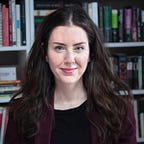Into the Fire
Is the future of work no work at all?
Depending on who you talk to, FIRE, which stands for Financial Independence, Retire Early, is either a genius life hack or a pile of garbage. When I started looking into it, I was definitely leaning towards the latter.
It’s hard not to be skeptical of something that tells you can you retire in your 30s, particularly at a time when the household debt in Canada has reached alarming levels and millennials are constantly under attack for their lack of savings. How’s someone who enjoys sipping a charcoal-activated oat-milk latte every morning supposed to save $1 million in under a decade?
Well, they’re not.
FIRE is spectacularly unattainable for most people, not just avocado-toast loving millennials.
But if the idea of working a 9 to 5 for the next forty years terrifies you, or if you’re anticipating the inevitable burnout from your current side gig, then you might want to give it a shot anyway.
Here’s what you’ll need to do to retire in about 10 years: save 50–70% of your income. Adopt a minimalist lifestyle. Invest your money in low-cost index funds.
Sounds simple enough, right?
Mr. Money Mustache, whose blog on this topic gets around 7 million monthly page views, makes his journey to FI (Financial Independence) sound even simpler: “This was achieved not through luck or amazing skill, but simply by living a lifestyle about 50% less expensive than most of our peers and investing the surplus in very boring conservative Vanguard index funds and a rental house or two.”
After having read pretty much every book and Reddit thread on FI, I can confidently say that the investing part of achieving financial independence might be the only simple thing about it. And that’s saying a lot since there’s nothing simple about trying to figure out how to make $1 million last for 30+ years.
FI is complex because it’s more of a philosophy than a set of rules. After all, it’s easy to break rules. Just ask anyone who’s ever gone on a diet. But a change in philosophy, a change to the fundamental way in which you live your life, is harder to achieve.
In the book Early Retirement Extreme, author Jacob Lund Fisker puts the task of saving and living frugally enough to achieve FI into perspective:
“You must be willing to change your frame of mind and conquer old habits. In particular, you must be willing to do things that 95% of the population won’t be able to understand and 99% won’t be willing to do.”
Having to save upwards of 70% of your income would be an impossibility for many of us. That kind of frugality goes well beyond skipping lattes and brown bagging it every day. We’re talking cutting your own hair, making your own laundry detergent, and selling most of your stuff, including your car if you have one.
But while living that FI life might not be right for everyone, whether because it’s unrealistic or undesirable (some of us actually like our jobs), incorporating some of the FIRE philosophy into our lives wouldn’t be a bad thing. Especially when you consider that so much financial advice these days centres around the idea of the side hustle, because earning more money seems easier than saving it. But, as Mr. Money Mustache puts it, “all the earnings in the world are useless if you never know the meaning of the word ‘enough’.”
Financial Independence isn’t about being rich. It’s about having enough. And enough is quantifiable and personal. Your number won’t be the same as mine. That’s not important. What’s important is trying to figure out what “enough” even means.
In Your Money or Your Life, author Vicki Robin, who’s been financially independent since the 1970s, will help you figure that out. Fair warning: it won’t be easy. She’ll make you think about work in a very different way and track the money coming in and out of your life down to the penny.
But her book, along with a lot of other FIRE resources, will also make you realize how much you’re losing by simply doing the things we’re all expected to do: go to school, get a job, buy a house, have a family, work until retirement. Options like Financial Independence are never really presented to us. But FIRE deserves a booth at career day along with all the others. Because while it may not be possible for everyone, it’s certainly an option for some.
So, in the end, the only garbage thing about FIRE is that I didn’t learn about it earlier.
But first, books. Start your journey into the FIRE movement with these books. Bonus points if you skip the store and get them from the library.
Your Money Or Your Life by Vicki Robin
There’s a quote on the back from Oprah that says this book might change your life. That’s reason enough to read it.
Work Optional by Tanja Hester
Tanja retired before the age of 40 so she could live a more creative life in Lake Tahoe. Don’t you want to find out how she pulled that off?
Meet the Frugalwoods by Elizabeth Willard Thames
This book will make you want to ditch everything and move to a little house deep in the woods. You’ve been warned.
